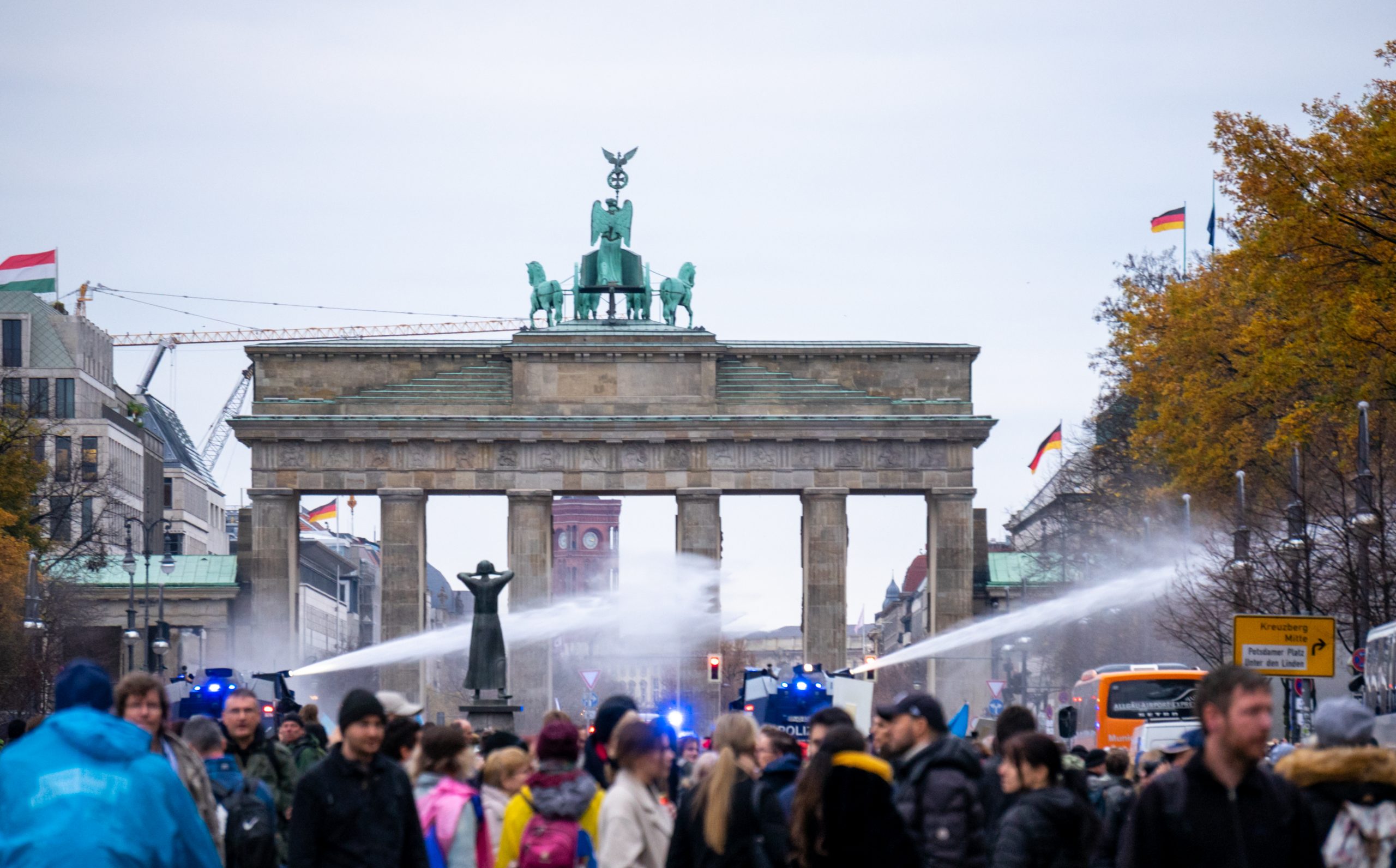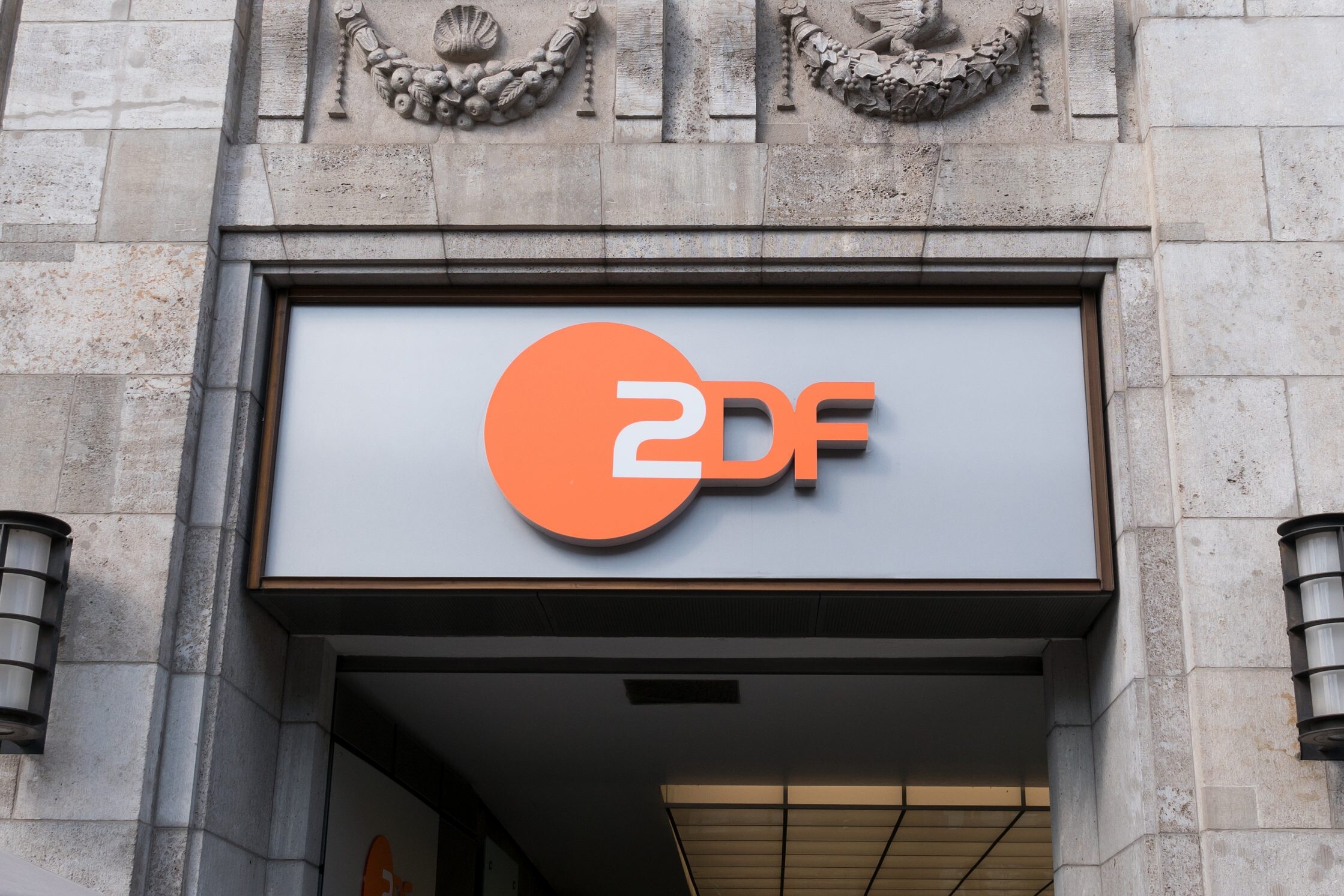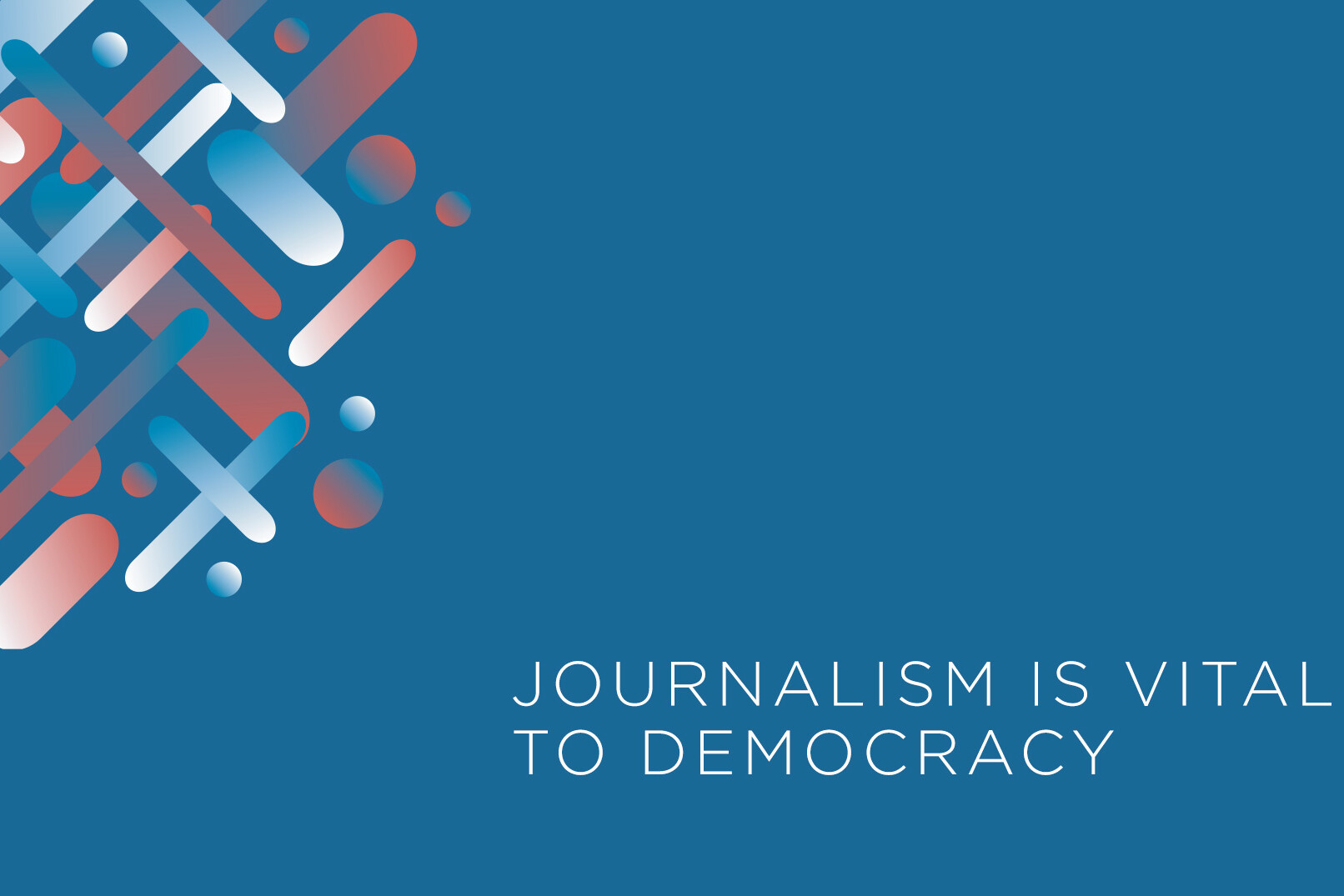New flyer released to help protect German journalists
19 January 2022
A flyer was distributed to security forces and journalists by the DJV on the best way to protect journalists at protests.

New advice recommends that journalists contact the police before a protest to ensure their safety. The guidance was included on a flyer written by Germany’s largest journalists organisation, the German Association of Journalists (DJV). The national chairman, Frank Überall unveiled the flyer at a media conference last week in Berlin.
It was also designed to be read by police officers, with advice for those working during protests on how best to interact with the journalists covering them. It also provides police with critical information about press cards. “Unfortunately, we find again and again that police officers do not know the press card,” Überall said. This has proven to be an issue as activists have sometimes used fake press cards in the past.
It comes after several Covid-19 protests in Germany which have put journalist safety in the spotlight. One gathering just after the New Year was a particular threat, where those attending turned on public broadcaster ZDF, and shouted “Lügenpresse” [fake news media].
“As a constitutional state, we must under no circumstances accept violence against police officers or journalists” – Minister of Justice, Marco Buschmann
Unions are now attempting to address the danger journalists face when covering protests. Over the past year, there has been a significant rise in the number of threats and attacks on journalists, according to Monique Hofmann, the Federal Director of the German Union of Journalists (dju).
In 2021, there were 119 reports of threats, attacks, insults, and legal attacks, up from 72 the year before. “Experiences of violence and threatening situations, which in the pre-pandemic times mostly media workers who researched in right-wing extremist contexts had to experience, are shockingly part of everyday work for more and more journalists,” Hofmann said.
Both the dju and the DJV are calling for discussions between the media sector, security forces, and government, to develop a strategy to improve journalist safety. DJV claimed it was an issue which the previous administration was silent on, but has since reported encouragingly that the new Minister of Justice, Marco Buschmann, has already affirmed press freedom as a foundational right which needs safeguarding. “As a constitutional state, we must under no circumstances accept violence against police officers or journalists,” Buschmann said.
PMA echoes the calls from both dju and DJV, for all parties to engage in dialogue about how to better improve journalist safety. In times of mis- and disinformation, widening polarisation, and a crisis of trust in authorities, a free media is critical. This media cannot be intimidated or forced to self-censor by a small section of society with a mob-like attitude towards journalists. As such, it is incumbent on the authorities to assist in whatever way they can to ensure reporters can continue to do public interest journalism, without fear of reprisal or retribution.
Related Posts
30th September 2021
Brussels Declaration: PMA joins public media and international organisations to call for journalist safety and media freedom
Today, public service media companies…

